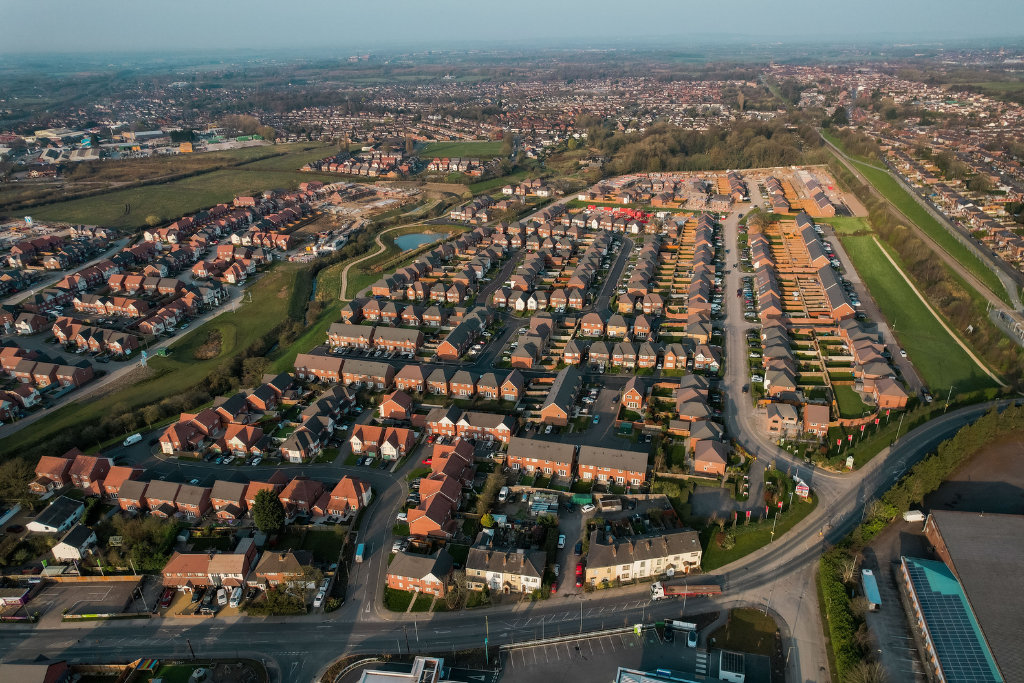
Can estate agents lie about offers?
Talking about estate agent lies and how you can spot them
Sell your house in 28 days
WRITTEN BY: tom condon ★ Digital Content Writer


Can estate agents lie about offers?
Talking about estate agent lies and how you can spot them
Sell your house in 28 days
WRITTEN BY: Tom Condon ★ Digital Content Writer


Table of Contents
Unethical estate agents may lie about receiving multiple offers to create urgency or push you toward a quick decision. They may also steer you towards a particular buyer from whom they expect a higher commission.
In this article we will discuss whether estate agents lie about offers on houses, why lying is unethical and what the role of The Property Ombudsman is in protecting consumers.
Key takeaways:
- Estate agents lying about offers is unethical and against professional standards, but fabricating offers is illegal and punishable by UK law.
- The Property Ombudsman provides a redress scheme to handle complaints, ensuring estate agents follow a strict code of conduct.
- Consumers can report dishonest practices to TPO, which can investigate and impose sanctions on non-compliant estate agents.
- The Property Selling Company is an honest estate agent, operating under the TPO code of conduct.
Do estate agents lie about offers?
Yes, estate agents can and sometimes do lie about offers on a house. They may do this to create a sense of urgency, boost their commission, or gain an advantage in negotiations. However, there is a difference between lying about an offer and completely fabricating an offer. While both are unethical, fabricating an offer is outright illegal.
In the UK, estate agents are required to be members of an approved redress scheme to handle complaints made by consumers. The Property Ombudsman is one such scheme, but it is not the only one. The two main redress schemes for estate agents are:
Membership in one of these schemes is mandatory for estate agents operating in the UK. Therefore, while estate agents do not have to be members of The Property Ombudsman specifically, they must be part of either TPO, PRS, or another government-approved redress scheme. This requirement ensures that consumers have a formal process to resolve disputes with estate agents.
If an estate agent is operating without being a member of an approved redress scheme, they are in breach of the law and could be imposed with fines (up to £5,000 per breach) and legal action from Trading Standards. You should not sell your house with an estate agent not part of a Redress Scheme.
The Property Ombudsman helps to protect customers by regulating estate agents and ensuring they follow strict ethical procedures. TPO provides a redress scheme for homesellers to resolve disputes with estate agents. Membership in the TPO is voluntary but highly regarded within the industry. Here’s how the TPO helps protect consumers:
- Code of conduct: TPO members must follow a strict code of conduct which includes honest and transparent dealings regarding offers on properties. Lying about offers breaches this code.
- Complaint resolution: Consumers can file complaints with the TPO if they suspect misconduct such as lying or fabricating offers. The Property Ombudsman investigates these complaints thoroughly.
- Disciplinary action: If an estate agent is found to have breached the code of conduct, the TPO can impose sanctions, including warnings, fines or even expulsion from the scheme.
- Consumer protection: By holding estate agents accountable, the TPO helps maintain trust in the housing market. Even though membership is voluntary, reputable agents often participate to demonstrate their commitment to ethical practices.
While it is possible for estate agents to lie about offers, it is both unethical and against the code of conduct set by regulatory bodies like The Property Ombudsman. The Property Selling Company ensures a transparent process, providing you with an honest house valuation and real offers, helping you to avoid the pitfalls of dishonest estate agents.
Sell to a regulated estate agent
Is it illegal for estate agents to lie about offers?
It is not strictly illegal for estate agents to lie about offers, but it does violate a code of conduct set by The Property Ombudsman that they are expected to follow, especially if they are regulated. Lying about offers can still be misleading and unethical, but the legal repercussions may not be as severe unless it crosses into fraudulent behaviours.
However, if an estate agent fabricates an offer, this is illegal. Under the Fraud Act 2006, fabricating an offer is considered Fraud by False Representation. This occurs when an estate agent:
- Makes a false representation
- Intends to gain personally or for their company
- Intends to cause loss to their customer or expose anyone to a risk of loss
This constitutes a criminal offence and can result in severe legal consequences, including imprisonment and fines, although the later is more likely.
Here at The Property Selling Company, we pride ourselves on our honesty and transparency, ensuring that every offer presented to you is genuine and backed by our commitment to ethical practices, giving you peace of mind and confidence in the sale process.
Can you report estate agents for lying?
Yes, you can report estate agents to The Property Ombudsman if they lie to you about offers on your house. Here’s how you can do it and what you can expect from the process:
Gather all relevant evidence, including communications, emails and any documentation that supports your claim that the estate agent lied about your offers.
You can submit a complaint to the TPO through their website, by email, or by post. Make sure to provide all the necessary details and evidence. TPO will assess your complaint and determine if it falls within their jurisdiction and if the estate agent has breached the code of conduct.
TPO will conduct an initial assessment to understand the nature of your complaint. If required, TPO will conduct a detailed investigation which may involve gathering additional evidence and statements from both parties.
The Property Ombudsman aims to mediate and resolve the dispute between you and the estate agent. They will try to work towards a fair resolution, which often involves making recommendations or instructing the estate agent to take specific actions to rectify the situation.
If the estate agent is found to have lied and breached the code of conduct, TPO can impose sanctions. These can include formal warnings, compensation orders, fines or even expulsion from the scheme.
TPO’s decisions are binding on member estate agents. If the estate agent fails to comply, they can face further disciplinary actions.
Reporting unethical behaviour helps protect your interests and ensures that you receive fair treatment. By holding estate agents accountable, The Property Ombudsman helps maintain high standards within the housing sector. Reporting dishonest practices can deter other estate agents from engaging in similar behaviour.
If you believe an estate agent has lied to you about offers on your house, you have the right to report them to The Property Ombudsman. TPO will investigate your complaint, mediate the dispute and take appropriate actions to ensure a fair resolution.
With The Property Selling Company, you can rest assured that our transparent and straightforward approach means you won’t need to worry about dishonest practices or misrepresentation.
Do estate agents lie about other offers?
Estate agents should not disclose specific details about other offers unless those offers have been rejected as too low, or the agent has explicitly stated that they are sharing this information with all parties involved.
Sharing such details selectively is unprofessional and unethical. However, it’s important to remain cautious as not all estate agents strictly follow these standards.
If an estate agent does inform you about another offer, approach this information with scepticism. They may be exaggerating or fabricating details to influence your decision.
Unethical estate agents might lie about other offers to create a sense of urgency or to push you into making a higher bid. This can lead to a ‘knee-jerk’ reaction, where buyers panic and bid beyond their means to secure the deal.
We avoid such practices by ensuring that all offers and information shared with you are accurate and verified, helping you make informed decisions without undue pressure.
Do estate agents have to prove other offers?
Estate agents are not legally required to prove the existence of other offers unless they choose to disclose this information. If they do, they must ensure it is accurate and shared transparently with all parties involved.
Under the Estate Agents Act 1979, estate agents must act in the best interests of their clients and treat all parties fairly. They are not allowed to disclose specific details of other offers unless they have obtained permission from the parties involved. If they do share such information, it must be accurate and truthful.
It is illegal for estate agents to provide false or misleading information about property offers or transactions. Doing so can result in regulatory action and penalties under the Estate Agents Act 1979. However, the Act does not specifically mandate the disclosure of specific details about other offers which can sometimes lead to confusion.
While the law may not explicitly require estate agents to provide proof of other offers, professional standards set by The Property Ombudsman demand that any information shared must be accurate. Estate agents should not fabricate or misrepresent offers, following ethical guidelines and maintain integrity in their dealings.
Estate agents can discuss other offers without providing proof as long as the information is truthful and not intended to mislead. This approach helps maintain transparency while respecting confidentiality agreements and the privacy of other parties involved.
For serious breaches of the Estate Agents Act, the National Trading Standards Estate Agency Team (NTSEAT) can issue prohibition orders, preventing individuals from engaging in estate agency work and effectively ending their careers in the industry. This enforcement makes sure that estate agents operate within the legal framework and maintain high standards of professionalism.
Here at The Property Selling Company, we make sure that all the information about offers is communicated transparently and accurately, giving you a clear and honest view of the market and potential buyers.
Do agents lie about having offers?
Ethical estate agents typically won’t lie about receiving offers, but they may withhold or present information in a way that encourages potential buyers to act. For instance, they might say “the seller is considering other offers,” even if there is only one offer on the table. This creates a sense of competition without being entirely untruthful.
Sometimes, estate agents might even mention that the seller is about to accept sealed bids, prompting you to submit an offer quickly. This strategy is used to speed up the process, but it doesn’t necessarily mean there are multiple offers.
Most ethical estate agents avoid outright lies about the existence of offers because they understand the serious repercussions of such actions. Lying about offers can lead to loss of trust, damage to their reputation, and severe legal consequences under laws like the Estate Agents Act 1979 and the Fraud Act 2006.
While they might use certain tactics to create urgency or encourage offers, outright fabrications are generally avoided by professionals who follow the strict guidelines of membership bodies like TPO.
The Property Selling Company is a member of The Property Ombudsman and ensures all claims about offers are truthful and verified, allowing you to make decisions based on accurate information.
Can you ask for proof of another offer on a house in the UK?
Yes, you can ask for proof of another offer on a house. It is advisable to make this request in writing, either via post or email, to ensure you have documented evidence of your request.
When you ask for proof, the estate agent must decide whether they wish to disclose the details of the offer to all parties involved. If the agent chooses to share this information, they must do so transparently and accurately with all potential buyers.
Here at The Property Selling Company we value transparency and honesty. If you request proof of another offer, we will provide you with accurate and verifiable information to ensure you are fully informed throughout the process.
How to tell if an estate agent is lying?
If you’re a house seller wondering if your estate agent is lying about offers or any other aspect of your house sale, there are a number of steps you can take to protect yourself:
Request written proof of any offers. This can be as simple as asking the estate agent to email you the details of the offer. You can also ask for a solicitor to verify and sign off on the offer’s authenticity.
If the estate agent is reluctant, ask specific questions about the offer, such as the buyer’s financing status, the proposed completion date and any contingencies. Genuine offers will usually have detailed and consistent information.
But, if the estate agent outright refuses, it’s likely that the offer is fabricated.
While you sell your house via The Property Selling Company, we will make sure that any offer is handled transparently and efficiently, so you can trust the process without the need for constant verification.
Insist on full disclosure about all offers received. This includes knowing the exact terms and conditions of each offer. Keep all communications in writing, whether through email or formal letters. This creates a paper trail that can be useful if disputes arise.
Transparency is one of our core values, which is why we take pride in ensuring all communications and offer details are clearly and promptly shared with you, making the selling process straightforward and honest.
Check online reviews on Trustpilot or Google, and testimonials about the estate agent. Look for patterns of complaints or praise that might indicate their reliability. If possible, talk to other clients who have worked with the estate agent. They can provide insights into the estate agent’s honesty and professionalism.
Choosing The Property Selling Company means relying on a service with a strong reputation for integrity and positive client feedback, ensuring your experience is trustworthy and reliable.
Try to be present for viewings and interactions between your estate agent and potential buyers. This allows you to observe the estate agent’s behaviour and gauge the level of interest directly. Request feedback from viewers yourself and if your agent claims high interest, see if this matches the feedback you receive.
Estate agents aren’t limited to just lying about offers, here are some other common lies they may tell a seller, so you know what to look out for:
One lie you may hear is that your house is very popular, leading to numerous viewings. In reality the estate agent may be booking viewings back-to-back to create an illusion of high demand. They may even ask their friends to view your house and act interested to make it seem like your house has lots of interest.
To get you on their books in the first place, an estate agent may overvalue your house, especially if they know they’re competing against other estate agents. This can result in your house sitting on the market with little interest, eventually forcing you to lower the house price. Always do your own research and get multiple valuations.
We provide realistic and competitive house valuations to help you achieve a timely and successful house sale, avoiding the issues surrounding overpricing.
An estate agent might claim their in-house mortgage advisor will offer the best deals, without disclosing that they receive a financial incentive for steering you towards their advisor. Always get the advice of a mortgage broker to ensure you get the best deal.
The Property Selling Company focuses solely on selling your home, without any hidden agendas or financial incentives, ensuring that your best interests are always our priority.
New estate agents might exaggerate their experience to gain your trust. If you find out they’ve lied about their expertise, it’s best to find a new estate agent as their integrity is questionable.
Our team at The Property Selling Company is composed of experienced professionals of estate agents and property consultants, who provide honest and accurate representations, and have a century of combined industry experience.
Do estate agents have to be honest?
Estate agents are required to act in the best interest of their clients and must not provide false or misleading information. This is mandated by the Estate Agents Act 1979 and enforced by professional standards set by bodies like The Property Ombudsman. While estate agents are not legally obligated to disclose every detail, they must be truthful in their communications and actions.
Estate agents are also obligated to disclose any material information that can affect the seller’s decision making. This includes data on potential buyers, the actual market value of the property, or any other relevant details. They must be transparent and provide accurate information to help sellers make informed decisions.
Estate agents must avoid making false representations about the property. Exaggerating its features or downplaying its faults is legally unacceptable. They must provide truthful and accurate descriptions in all communications and advertisements.
Agents often come into possession of confidential information about sellers, such as reasons for selling, financial conditions or future plans. It is their legal duty to ensure this information remains private and not disclose any material information without the seller’s explicit consent.
Estate agents must put the seller’s interests first, avoiding any potential conflicts of interest. If representing both the buyer and the seller (dual agency), estate agents must disclose this fact to both parties and ensure transparent, fair dealings.
We wouldn’t have been in business for over six years if we weren’t an honest estate agent. We make sure that we follow The Property Ombudsman’s code of conduct, and we take pride in making sure that you have a positive experience with us.
Our process has been built to protect the rights of house sellers, and to protect the amount of profit and speed we can achieve for you.
How to outsmart an estate agent?
An estate agent is less likely to ‘pull a fast one’ on a seller since technically they are working for you and their fee will be paid from the sale of your home. However, they may still prioritise their own interests, so be aware of common tricks and know how to deal with the tricks of the trade:
Be proactive and show that you are informed, willing to do your own research, and stay involved throughout the sale process, this can deter dishonest behaviour.
You should try and ensure you and your estate agent have the same priorities, whether it’s getting the best price or selling quickly (with us you can do both). Communicate clearly and choose an estate agent who understands and supports your goals.
At The Property Selling Company, we align our goals with yours, whether it’s securing the best price or achieving a quick sale (or both), ensuring a collaborative and transparent process.
Watch out for fee quotes without VAT. Fees must be shown inclusive of VAT (currently at 20%). Confirm the fee quoted includes VAT to avoid surprises later.
We offer clear and transparent fee structures, inclusive of all charges, so you know exactly what to expect without any hidden costs – we cover all the house selling costs so you don’t have to.
Ask detailed questions about the actions the estate agent has taken to promote your house and be present for all viewings if possible.
One issue some homeowners meet is estate agents suggesting extra advertising at an additional cost if your house isn’t selling. Question why they haven’t already done everything to market your home and whether the extra cost is refundable if no offers come in.
We offer a full estate agency service, which covers a comprehensive marketing strategy, meaning you won’t have to pay a penny when it comes to selling your home.
Check out the estate agents online reviews to gauge the reputation of your estate agent. If the estate agent says they are a member of a regulatory organisation like The Property Ombudsman or the National Association of Estate Agents, check on the bodies website, as they have a verified list. You can also speak to others who have used the same estate agent to learn about their experiences.
Our reputation for integrity and excellence is reflected in our positive reviews and memberships in The Property Ombudsman, providing you with peace of mind.
You will need to check the tie-in period in your contract. Four to twelve weeks is standard, anything longer can be unnecessary. Try and negotiate shorter terms if needed and remember you can renew the service if you’re satisfied with the estate agent.
If you remain concerned about an estate agent’s actions, contact The Property Ombudsman for further investigation. If dishonesty persists, consider moving to a different service provider.
Choosing The Property Selling Company means you’re working with a team committed to transparency and honest practices, minimising the need for escalation and ensuring a smooth and trustworthy selling process.
Where can you find an honest estate agent?
If you are looking for an ethical and honest estate agent, there are several steps you can take to ensure you find the right one. One of the first things you can do is use Google Maps to search for estate agents in your local area.
Google Maps will provide you with a list of nearby estate agents, and you can easily access their profiles to read reviews. When reading reviews, it’s important to check not only the 5-star reviews but also the 1 and 2 star reviews to identify any recurring issues.
Pay attention to comments about communication, reliability and overall service quality. Red flags to watch out for include frequent complaints about poor communication or accusations of dishonesty, as well as a perfect 5 star rating.
Once you have identified some potential estate agents with positive reviews, it is important to evaluate their overall ratings. Aim for estate agents with average ratings between 4 and 4.9 stars.
This range usually indicates a reliable service and shows that the estate agent has managed to resolve issues professionally when they arose. Consistently high ratings, coupled with occasional constructive feedback, can be a good sign of a trustworthy estate agent.
After narrowing down your options based on reviews and ratings, the next step is to check if the estate agents are members of The Property Ombudsman. Membership with The Property Ombudsman indicates that the estate agent follows a strict code of conduct and provides a redress mechanism if any issues arise.
This membership is a significant indicator of an estate agent’s commitment to ethical practices and makes sure your rights as a seller are protected. Knowing that an estate agent follows The Property Ombudsman’s standards can give you added peace of mind.
It’s also important to consider the costs associated with selling your house via a local estate agent. Typically, selling with a local estate agent can involve substantial expenses. You might spend upwards of 16 weeks on the market, incur commissions up to 3% +VAT, and pay around £1,500 in solicitor fees. These costs can add up quickly so it’s important to factor them into your decision making process.
As an alternative, you might consider selling with The Property Selling Company, which offers a more seamless and cost-effective process. We can help you sell your house fast in as little as 28 days and aim to achieve 95%+ of your market value.
One of the key benefits of working with us is that we cover all your associated selling costs, including legal fees, making the process far more affordable. Additionally, we are members of The Property Ombudsman, and we follow high ethical standards.
With over six years of experience, a century of combined experience and hundreds of positive reviews, The Property Selling Company is part of one of the largest house-selling solutions in the UK, providing a reliable alternative to traditional estate agents.
Frequently Asked Estate Agent Questions
Estate agents are legally and ethically bound to provide accurate information about offers. Exaggerating offers can be considered misleading and is a violation of professional standards.
However, while estate agents are supposed to act in the best interests of their clients, some might still exaggerate interest or the competitiveness of the market to prompt quicker decisions. It’s important to request written proof of offers to ensure transparency.
No, estate agents are not allowed to lie about offers. While it might not be strictly illegal in every instance it is certainly unethical and can violate professional codes of conduct.
Estate agents who are members of professional bodies such as The Property Ombudsman must follow a strict code of conduct. This code requires honest and transparent dealing with clients, including truthful representation of offers.
The Property Ombudsman and similar organisations regulate estate agents and enforce these ethical standards. If an estate agent is found to be lying about offers, they can face disciplinary actions from these bodies, including warnings, fines or expulsion.
When dealing with estate agents, avoid disclosing your maximum budget, reasons for selling (such as financial difficulties), or your urgency to sell. Revealing too much can weaken your negotiating position. Keep discussions focused on the house and its value rather than your personal circumstances.
Yes, you can ask an estate agent about offers made on a house. While they may not provide exact details due to confidentiality agreements, they can give you a general idea about the level of interest and competitiveness. However, always request written verification to ensure this information is accurate.
Estate agents might undervalue properties to secure a quick house sale, especially if they have a high volume of listings and want to turn houses over quickly. This practice benefits the estate agent by earning commission faster but can significantly disadvantage the seller. It’s advisable to get multiple house valuations and conduct independent research to understand your property’s true market value.
Yes, estate agents are required to inform you about any offers on your home promptly. They must present all offers fairly and without delay, making sure you have all the necessary information to make an informed decision.
When handling multiple offers, an estate agent should maintain transparency and fairness. They should present all offers to the seller without bias and provide clear information about each other’s terms. The estate agent should not favour any particular offer unless instructed by the seller and must keep all parties informed throughout the process.
Yes, you can escape an estate agent contract but it depends on the terms outlined in the agreement. Most contracts have a tie-in period, usually between four and twelve weeks. If you are unhappy with the service, you should check the contract for any termination clauses and potentially negotiate an early exit. Always read the contract thoroughly before signing to understand your obligations and rights.
A phantom house offer is a fictitious offer made up by an estate agent to create a sense of urgency or competition among potential buyers. This unethical practice is intended to pressure buyers into making higher offers or quick decisions. If you suspect a phantom offer, ask for written proof and consult with other buyers or professionals.
The frequency of chasing your estate agent depends on the activity in the market and the stage of your sale. Generally, checking in once a week is reasonable. However, during critical times, such as when offers are being made or contracts are being exchanged, you might need to contact them more frequently. Open communication is key to ensuring you’re kept informed throughout the process.
Buyers can ask for the exact amounts of other offers, but estate agents are not obligated to disclose this information due to confidentiality and professional standards. Estate agents can provide general information about the level of interest and competitiveness but should maintain the confidentiality of individual offers.
Phantom bids, or fabricated offers, are considered unethical and are not common practice among honest estate agents. However, they can occur in competitive markets. If you suspect phantom offers, request written verification of offers and consider seeking advice from regulatory bodies like The Property Ombudsman.
What are you waiting for? Sell the easy way









